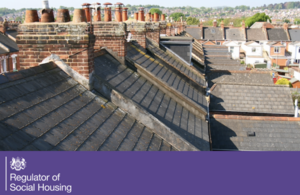Regulator of Social Housing takes action against Rochdale Boroughwide Housing after investigation finds widespread failings on damp and mould
The Regulator of Social Housing has found significant failings in the way that Rochdale Boroughwide Housing deals with damp and mould across the organisation

Following an investigation into Rochdale Boroughwide Housing, the Regulator of Social Housing has found significant failings in the way that RBH deals with damp and mould across the organisation, beyond the specific findings in the coroner’s verdict on the tragic death of Awaab Ishak. As a result, RBH has breached the regulator’s consumer and governance standards. The regulator is taking action to make sure RBH addresses these failings and puts things right for its tenants. The regulator expects all social landlords to learn lessons from the case.
The regulator has found that:
-
RBH waited nearly two years after Awaab Ishak’s death to check for damp and mould in other homes on the estate. When they did eventually check, they found hundreds of tenants living with damp and mould. Awaab Ishak’s death should have alerted RBH to the safety risks for its tenants, but it failed to act quickly and protect more tenants from potential harm.
-
Wider failings within RBH meant that it gave the regulator inadequate information about damp and mould shortly after Awaab Ishak’s death. The widespread issues in its homes which it later found severely undermine RBH’s credibility and exposes significant failings in the way it treats damp and mould.
-
RBH has weaknesses in its IT and internal communications, which led to vital information being missed. The repairs team were unaware of the concerns raised by Awaab Ishak’s healthcare worker, which may have enabled them to identify the risks earlier.
-
RBH made incorrect assumptions about the cause of damp and mould in Awaab Ishak’s home and failed to act to resolve the issues. RBH did not treat Awaab Ishak’s family with fairness and respect, and the regulator does not have confidence that RBH is treating other tenants with fairness and respect.
The regulator expects RBH to take urgent action to address these failings and will take enforcement action if necessary. In particular, the regulator is pushing RBH to improve the way it is run and to fix its approach to managing damp and mould in tenants’ homes.
The regulator’s findings send a clear message to all social landlords that:
-
Housing associations and councils need to ensure their homes are well maintained and of a decent standard.
-
Landlords need to have systems in place to ensure their homes are free from hazardous levels of damp and mould, and deal with issues promptly and effectively.
-
Social landlords need to listen to their tenants’ concerns, understand their needs, remove barriers to accessing services and respond promptly when they need to put things right.
The regulator wrote to every social landlord on 22 November 2022 to highlight landlords’ responsibility to protect tenants from hazardous damp and mould. Landlords need to submit evidence to the regulator by 19 December to show they are dealing with damp and mould appropriately. If this evidence isn’t provided, the regulator will take appropriate action.
Fiona MacGregor, RSH’s Chief Executive, said:
Our investigation reveals significant failures in the way RBH manages damp and mould in its homes, resulting in harm to tenants. The tragic death of Awaab Ishak should have led to action to establish wider risks, but RBH failed to respond quickly or effectively. This is unacceptable. RBH needs to address the issues we have found and we will take further action if it fails to do so.
Our judgement sends a clear message to social landlords that they must deal with damp and mould as the serious hazards that they are, treat tenants with respect, and take their concerns seriously.
ENDS
Notes to editors
-
The Regulator of Social Housing has today (Thursday 15 December) published a Regulatory Notice for RBH following a breach of the consumer standards (specifically the Home Standard and the Tenant Involvement and Empowerment Standard). As a consequence, there was actual and potential serious detriment to RBH’s tenants. The regulatory notice is available on the regulator’s website. More information about the consumer standards is also available on the regulator’s website.
-
The regulator has also published a Regulatory Judgement to downgrade RBH to a non-compliant grade for governance (G3). The regulator lacks assurance that RBH has an effective risk management and internal controls framework and a board with sufficient capacity to ensure compliance with the regulatory standards. This is due to the failure of RBH’s board to act with an appropriate degree of skill, diligence, effectiveness, prudence and foresight in response to the most serious of consequences.
-
Under current legislation, RSH regulates the consumer standards on a reactive basis, considering cases when they are referred by tenants, registered providers and other stakeholders. The Social Housing Regulation Bill, which is currently in Parliament, will give the regulator new, stronger powers to proactively assess social landlords against the consumer standards. Landlords need to act now to ensure they comply with the consumer standards – including on issues relating to damp and mould – before the legislation is enacted.
-
RSH promotes a viable, efficient and well-governed social housing sector able to deliver and maintain homes of appropriate quality that meet a range of needs. It does this by undertaking robust economic regulation focusing on governance, financial viability and value for money that maintains lender confidence and protects the taxpayer. It also sets consumer standards and may take action if these standards are breached and there is a significant risk of serious detriment to tenants or potential tenants.
-
For press office contact details, see our Media enquiries page. For general queries, please email enquiries@rsh.gov.uk or call 0300 124 5225.